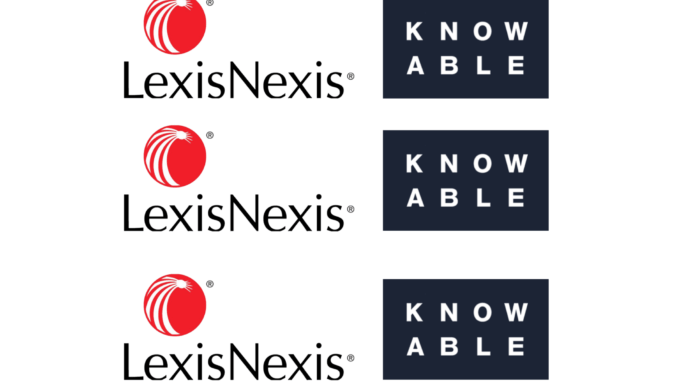
Nik Reed, the co-founder of what was in its time a truly pioneering NLP-driven legal research system called Ravel, and which was bought by LexisNexis, has now moved to Knowable as SVP of product & development to help the doc analysis platform to expand.
Knowable was spun out of Axiom and has formed a joint venture with LexisNexis – see story on its strategy here – with the aim of building a platform for event driven doc review and then ongoing analysis of key legal data, primarily aimed at corporates.

Hence the move by Reed is significant, given his experience both in helping to build an NLP-driven legal tech business, and also having worked inside LexisNexis while Ravel was fully integrated into the giant legal publisher’s tech stack.
The move should therefore help both parties of the joint venture and is a sign of how Knowable is steadily expanding.
Knowable has some impressive clients already, such as Dell, GE and Nestlé USA, some of which came over with it from its Axiom days. Although early in its development, if the company can build out its tech capabilities as it plans (see strategy story), then it could become a significant competitor to other legal tech companies operating in the same space.
In his new role, Reed reports directly to CEO Mark Harris, and will be working with Knowable’s engineering team to help the enterprise contract analytics company accelerate its expansion and growth into new markets, the company said.
Reed helped found Ravel back in August 2012, where he ran operations (finance, strategy, legal) for the legal research and analytics company that used machine learning, data visualisation, and data mining to deliver insights to US lawyers.
LexisNexis bought the company in June 2017 as part of a wider project to build in new NLP tech into its long-standing legal research capabilities. Earlier it had also bought out LexMachina, another US-based NLP legal tech company with a focus on research.
At LexisNexis, Reed transformed the company’s flagship product into what is now known as Context, which analyses the language of individual judges to find arguments they find most persuasive and uses data analytics to vet expert witnesses.
4 Trackbacks / Pingbacks
Comments are closed.